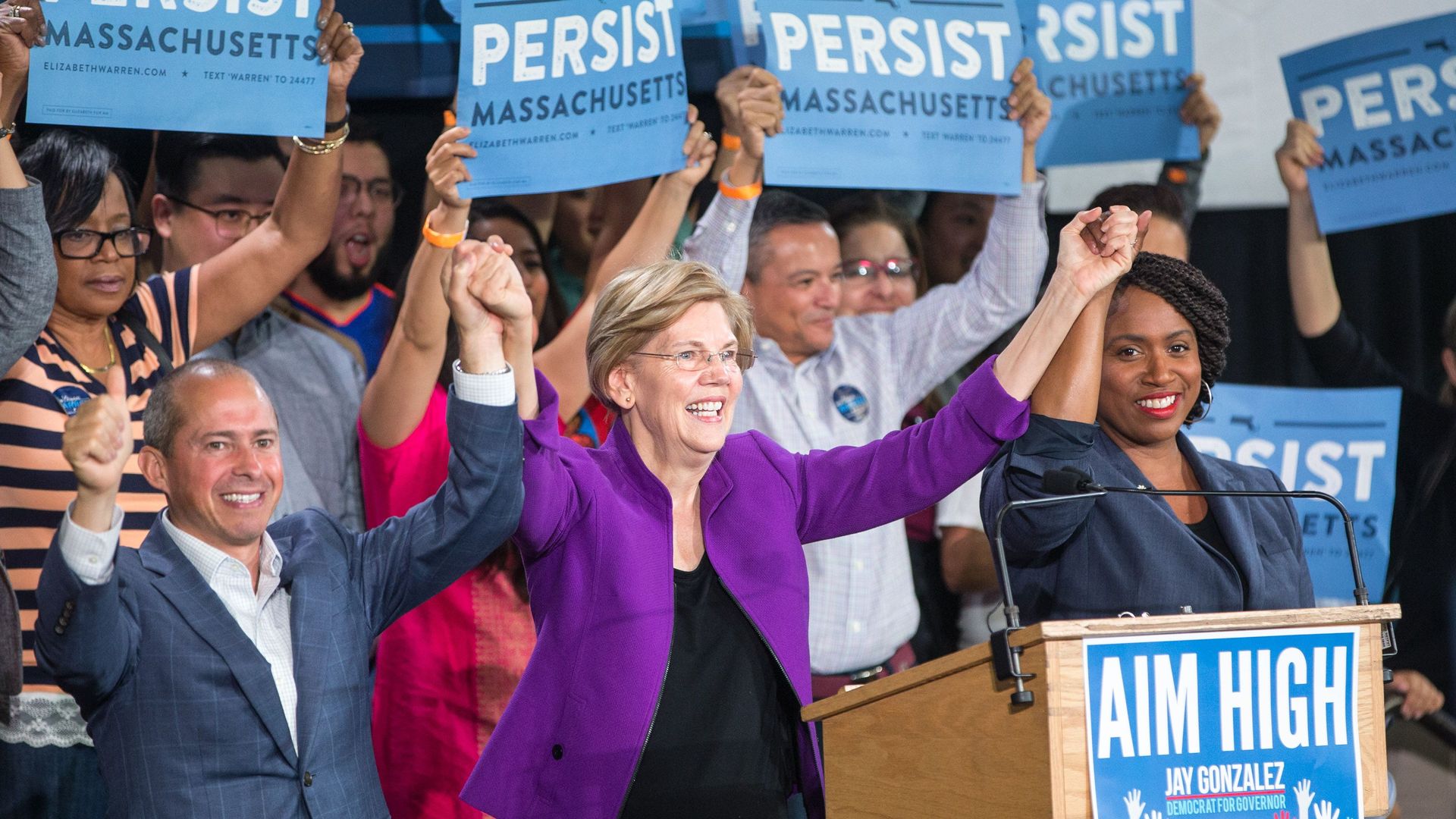Sep 16, 2018 - Politics & Policy
Danger signs for Bernie, Warren in 2020
Add Axios as your preferred source to
see more of our stories on Google.

Sen. Elizabeth Warren rallies in Cambridge, Mass., on Sept. 9. Photo: Scott Eisen/Getty Images
Add Axios as your preferred source to
see more of our stories on Google.

Sen. Elizabeth Warren rallies in Cambridge, Mass., on Sept. 9. Photo: Scott Eisen/Getty Images